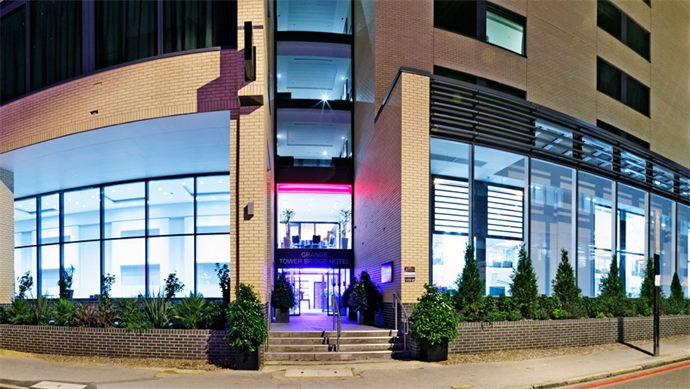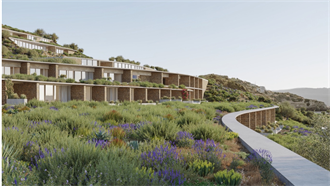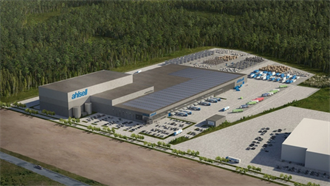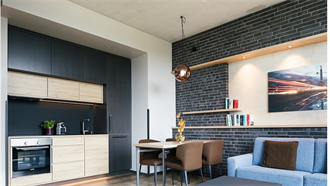At least two firms are marketing pan-European funds to export their UK ground rent model, often backed by alternative assets.
Alpha Real Capital, the London-based specialist real asset manager, is involved in two large transactions in the UK that between them would generate well over £1 bn (€1.1 bn) of commercial ground rents.
Both transactions would be worth a total of several billion but have been placed on hold amid the Covid-19 crisis. However, the fact that talks have taken place at all highlights how ground rents have become a part of the investment universe.
Though investment professionals warn that ground rent transactions are not without risk to the seller when there is downward pressure on the operator’s income, they have certainly gained traction in the UK - especially in the alternative asset classes including, but not limited to, hotels and care homes.
The signature deal, in which Alpha took part, arrived in March 2019. Queensgate Investments acquired four Grange Hotels in London for £1 bn (€1.2 bn), which it leased to the Fattal Hotel Group. Alpha acquired the ground rents to three of the hotels.
Earlier this year, UK property services firm Knight Frank issued a report that turned the spotlight on the emerging investment trend. In its UK Hotel Capital Markets, Investment Review 2020, it says: ‘The level of ground rent transactions which completed in 2019 is proof that there is a much wider pool of buyers willing to invest in these structures.’
It continues: ‘Ground rents are usually acquired through private transactions, but with robust portfolio activity from private equity investors and corporate hoteliers, there has been significantly more scope for institutional investors to carve out such structures.’
Long investment horizon
The firm goes on to explain how ground rent transactions typically offer the longest dated structure, with lease terms ranging between 100 and 999 years. Cash flow constitutes the majority of the return due to the extremely long investment horizon.
Hugo James, partner and head of long income at Alpha Real Capital, is bound by confidentiality when it comes to current transactions being negotiated. However, he explains: ‘Often, we are tying into either an M&A process, financing or refinancing. In the UK, we are seeing a reasonably broad spectrum of stressed and unstressed operators. Our investments are probably closer to non-traditional real estate such as hotels than to traditional property.’
In 2016, Alpha was the buyer of the first-ever healthcare ground rent portfolio in the UK. The 41 care facilities were operated by CareTech Holdings. The ground rents were bought for a term of 150 years for €38.7 mln at a net initial yield of 3.4%.
The company also created ground rents across a portion of holiday parks as part of Onex’s £1.35 bn purchase of Parkdean Resorts which completed in 2017.
In 2019, together with the Queensgate deal, Alpha was involved in the ground renting of Starwood Capital’s De Vere Beaumont hotel in Windsor, which Starwood acquired in 2014 and extensively refurbished.
Owners of operating assets such as Onex, Queensgate, Starwood or CareTech might ‘ground rent’ an asset or portfolio as part of financing, refinancing or raising funds alongside senior and junior debt. CareTech took the £30 mln from its freehold sale to invest in the business.
Such sellers have a range of options. Institutional players in the UK market include the likes of M&G Real Estate, PGIM, Nuveen, Aviva Investors Real Assets and L&G (see box below).
Alpha Real Capital believes that for institutional investors seeking long income, ground rents can be preferable to other fixed-income possibilities. It says gross IRRs of a typical ground rent acquisition would be 4.5% as opposed to 0.7% for European AAA corporate bonds, 2.1% for private infrastructure debt, or 2.2% for BBB graded CMBS.
Says James: ‘To someone in real estate this might seem a bit dry and vanilla if they see that as not enough risk reward, but to fixed-income investors this is a really clever option.’
Incidentally, gross IRRs from property income strips would be typically 5%, and 6% for long lease property, against 5.5% for direct senior corporate lending.
Continental European push
Few UK ground lease specialists have ventured into Continental Europe.
However, Alpha Real is raising the European Long Income Fund (ELIF), an open-ended vehicle as a sister to its UK fund. The company will make investments on behalf of ELIF in target segments of alternatives, healthcare and core real estate via ground rents as well as sale-leasebacks and income strips.
It has a pipeline of deals, says James. ’We want to take our fixed income and real estate expertise and apply it to the European market. Our aspiration is to become the Number One player in Europe, and we are starting to see really good deals. Operators will need refinancing or good liquidity.’
Covid-19 might have put a brake on many deals, especially with the introduction of material uncertainty clauses by valuers and the difficulty in travel. Yet the company and others such as London-based Long Harbour feel there are opportunities.
Long Harbour’s Richard Silva, who is head of secured income at the firm, is also marketing a fund for pan-Europe investment in ground leases. The company has a UK ground rent portfolio of £2 bn comprising mainly residential assets, having been actively acquiring them from major and smaller housebuilders. But the UK is currently subject to leasehold reform, making commercial UK ground leases more appealing as well as ground leases in some European jurisdictions.
Silva says that in response to a request from a limited partner in its UK fund, Long Harbour tested the European waters at the end of 2016 by acquiring land in Germany upon which 12 blocks containing 2,700 flats have been built. The ground leases have around 196 years remaining and the building owner is a listed PRS landlord in Germany. The rents are reviewed every three years according to German RPI levels, rather than annually which is typical for a UK ground rent. Long Harbour is now chasing further deals for its Long Harbour Euro Secured Income fund in Germany, the Netherlands, Ireland, Belgium, and Finland where the legal framework suits such investment.
Silva explains that in Germany, the building owner can extend the lease or the asset can be sold in the open market at the end of the term. The operator (building owner) gets two-thirds of the proceeds from the sale and the ground rent owner one third. But the building can only be sold with the benefit of the lease to the ground lease holder, so it is akin to a leasehold sale.
Long Harbour is currently in talks on a hotel investment in Munich. In September last year, Willis Towers Watson provided a commitment of up to £400 mln to Long Harbour’s fund, attracted by super long-term high-quality cash flows.
And in March this year, the firm made its first investment - land at Temple Bay in Dublin – which has leisure assets sitting on top. Long Harbour owns a 100-year lease at the end of which there is a buyback option for the operator at a modest peppercorn.
The company is mostly interested in the micro location of land as it must be of value at the end of several decades, it explains. Says Silva: ‘In Europe, we acquire the land but never become the building owner. Investors like it – insurance companies especially - for the liability-matching characteristics.’
The firm will advance up to 40% of the combined land value. Christophe de Taurines, advisor to Long Harbour, adds: ‘What we are creating is a very long-term asset akin to a triple AAA highly rated bond but with a higher spread.
‘Recently in Austria, the country issued a 100-year bond at 0.88%, and placed €2.2 bn. But demand was for €17.4 bn, almost 10 times what they placed. It shows you the huge demand there is for quality bonds and we are tapping into this demand.
‘We are creating a new way of thinking for ground leases, raising liquidity for operators and at the same time investing for institutional investors. It is quite a revolution in the making.’
Covid strain
Experts say they will be watching legacy and new ground rent deals closely since Covid-19 has put a financial and regulatory strain on many operators. Eastdil has reportedly been appointed bv the Fattal Hotel Group which leased the four hotels from Queensgate to advise on raising fresh equity and debt.
Lenders do not always like ground rents as senior debt is less senior to them. One investor with experience of using ground rents as a financial tool, said: ‘The issue is that ground rents are payable no matter what. Even if income falls to a certain level.’
‘Though “caps and collars” are widespread if the income is going down and the ground rent on a fixed annual RPI can hit dangerous levels and hammer values. It will be interesting to see how investors are protecting themselves. Perhaps we shall see new mechanisms for what happens should income fall below a certain level or whether ground lease owners will be precluded from enforcing due to a pandemic clause.’
In its capital market report, Knight Frank warns: ‘A key issue for the investor is the need to ensure the continuity of income. From both a tenant and an investor’s perspective, it is important that the rent is set at a sustainable level and that it remains affordable throughout the lease.’
Sample of ground rent buyers
M&G Real Estate
Aberdeen Standard Investment
PGIM
Aviva Investors
L&G
Nuveen
CBRE Global Investors
LaSalle Investment Management
Church Commissioners
BBC Pension Fund
Consensus Business Group
Source: Knight Frank & PropertyEU



































